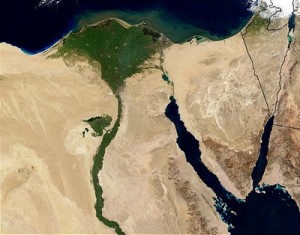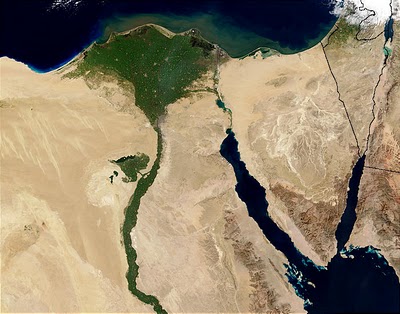
The historic return visit of an Egyptian president to Ethiopia, almost two decades after former president Hosni Mubarak avoided an assassination attempt in the country, will be an attempt to reaffirm Egypt’s declining influence in the African continent, experts said.
Egypt’s President Mohamed Morsy will travel to Ethiopia to attend the 19th African Union (AU) Summit on 15 and 16 July in the Ethiopian capital Addis Ababa. The summit will run from 9 to 16 July. This will mark the second overseas visit for Morsy as head of state. His first visit was to Saudi Arabia.
Ethiopia has significance for Egyptians as well. The visit is historic because it is the first visit by an Egyptian head of state to Ethiopia in 17 years after an attempted assassination of former president Mubarak in 1995.
African affairs expert Helmy al-Sha’arawy said it will take a lot of time and much more than attending the AU Summit to regain the influence Egypt once retained in Africa.
“It depends on whether or not a new policy begins to appear from Morsy and the intentions Morsy shows,” he said. “Mali, Niger, Libya and Somalia are just among the few conflicts in Africa that Egypt should play a stronger role in.”
Tensions have mounted between Egypt and Sudan in recent weeks over the arrest and detainment of two Egyptian journalists covering protests in Khartoum. As well, Ethiopia’s plans to build the Grand Ethiopian Renaissance Dam on the Blue Nile have strained the nation’s relationship with Egypt and Sudan.
The AU Summit comes ahead of the of a Nile Basin Initiative (NBI) meeting in Kigali Rwanda, in which the Cooperative Framework Agreement (CFA)l which seeks to create a more equitable share of the Nile will be discussed. Egypt and Sudan almost froze their continued participation in the NBI over the CFA, a standoff that was resolved only recently.
Al-Sha’arway said he doesn’t expect the CFA to be tackled in depth in the summit.
“If they do tackle it, they will be diplomatic about it and they will probably talk about how important it is for them to seek their shared interests in terms of Nile sharing,” said Al-Sha’arawy.
Sudan and Egypt are concerned the dam will affect their share of Nile water. The two countries together receive more than 90 percent of the river’s water through an agreement signed in 1959. Earlier this year, an international panel of experts was formed by the three countries to attempt to resolve the impasse.
Several colonial agreements governed the sharing of the river’s resources, dating back to the 19th century, but the most recent was the 1959 Agreement which gave Egypt and Sudan close to full control of all of the water resources of the river.
Ethiopia was not part of the agreement.
Almost all of Egypt’s drinking and irrigation water, roughly 95 percent, comes from the Nile, according to the Egyptian Water Partnership as. This means that any agreement to create a more equitable sharing will force Egypt to find other water resources.




